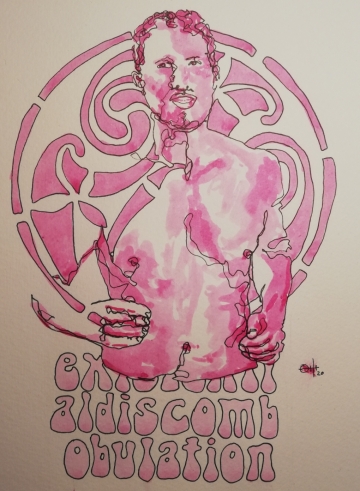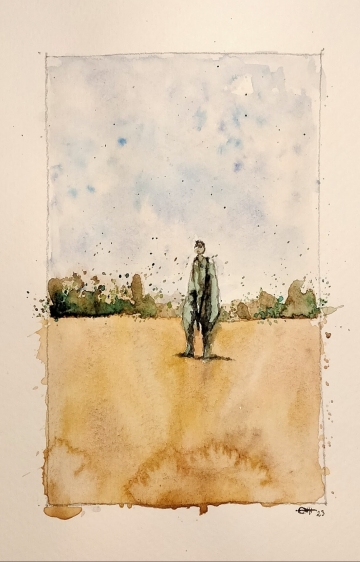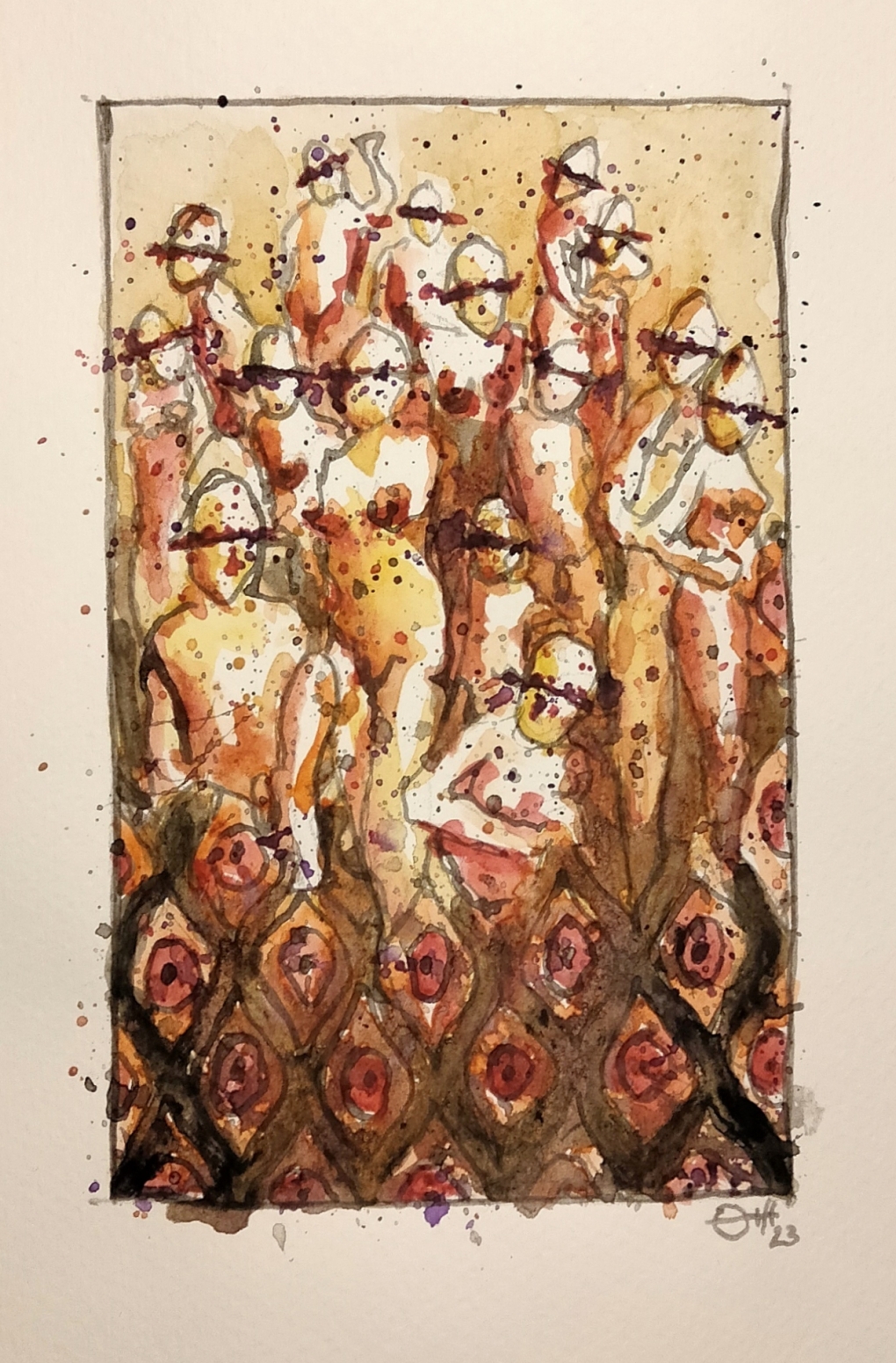Emotional Journeys
 shoutimage credit ::- (2022-01-19)
shoutimage credit ::- (2022-01-19) Artworks inspired by an image search for the word for an emotion.
adamant
/ˈadəm(ə)nt/
adjective
-
refusing to be persuaded or to change one's mind.
"he is adamant that he is not going to resign"
afraid
/əˈfreɪd/
adjective
-
feeling fear or anxiety; frightened.
"I'm afraid of dogs"
amazed
/əˈmeɪzd/
adjective
-
greatly surprised; astonished.
"I was amazed that he could remember me"
anger
/ˈaŋɡə/
verb
fill (someone) with anger; provoke anger in.verb
-
"she was angered by his terse answer"
annoyed
/əˈnɔɪd/
adjective
-
slightly angry; irritated.
"Kelly was annoyed with him"
anxious
/ˈaŋ(k)ʃəs/
adjective
-
feeling or showing worry, nervousness, or unease about something with an uncertain outcome.
"she was extremely anxious about her exams"
bitter
/ˈbɪtə/
adjective
-
feeling or showing anger, hurt, or resentment because of bad experiences or a sense of unjust treatment.
"I don't feel jealous or bitter"
bored
/bɔːd/
adjective
-
feeling weary and impatient because one is unoccupied or lacks interest in one's current activity.
"she got bored with staring out of the window"
comfortable
/ˈkʌmf(ə)təb(ə)l/
adjective
adjective: comfortable
1. free from stress or tension.
-
"they appear very comfortable in each other's company"
confused
/kənˈfjuːzd/
adjective
-
1.
(of a person) unable to think clearly; bewildered.
"she was utterly confused about what had happened"
content
/kənˈtɛnt/
adjective
-
in a state of peaceful happiness.
"he seemed more content, less bitter"
depressed
/dɪˈprɛst/
adjective
-
(of a person) in a state of unhappiness or despondency.
"she felt lonely and depressed"
determined
/dɪˈtəːmɪnd/
adjective
- having made a firm decision and being resolved not to change it.
"Alina was determined to be heard" - possessing or displaying resolve.
"Helen was a determined little girl"
eager
/ˈiːɡə/
adjective
-
strongly wanting to do or have something.
"the man was eager to please"
-
(of a person's expression or tone of voice) keenly expectant or interested.
"small eager faces looked up and listened"
-
embarrassed
/ɪmˈbarəst,ɛmˈbarəst/
adjective
-
feeling or showing embarrassment.
"I felt quite embarrassed whenever I talked to her"
-
having or showing financial difficulties.
"he had to sort out the embarrassed financial affairs of his brother"
-
envious
/ˈɛnvɪəs/
adjective
-
feeling or showing envy.
"I'm envious of their happiness"
foolish
/ˈfuːlɪʃ/
adjective
-
lacking good sense or judgement; unwise.
"he was foolish enough to confide in her"
frustrated
/frʌˈstreɪtɪd/
adjective
-
feeling or expressing distress and annoyance resulting from an inability to change or achieve something.
"young people get frustrated with the system"
furious
/ˈfjʊərɪəs/
adjective
-
1.
extremely angry.
"he was furious when he learned about it"
-
2.
full of anger or energy; violent or intense.
"he drove at a furious speed"
grieve
/ɡriːv/
verb
gerund or present participle: grieving
-
feel intense sorrow.
"she grieved for her father"
-
feel intense sorrow about.
"he is still grieving his mother's death"
-
cause great distress to (someone).
"it grieves me to think of you in that house alone"
-
happy
/ˈhapi/
adjective
adjective: happy; comparative adjective: happier; superlative adjective: happiest; suffix: -happy
-
1.
feeling or showing pleasure or contentment.
"Melissa came in looking happy and excited"
-
having a sense of trust and confidence in (a person, arrangement, or situation).
"he was not happy about the proposals"
-
satisfied with the quality or standard of.
"I'm happy with his performance"
-
willing to do something.
-
hopeful
/ˈhəʊpfʊl,ˈhəʊpf(ə)l/
adjective
adjective: hopeful
-
feeling or inspiring optimism about a future event.
"a hopeful sign"
hurt
/həːt/
verb
verb: hurt; 3rd person present: hurts; past tense: hurt; past participle: hurt; gerund or present participle: hurting
-
1.
cause pain or injury to.
"Ow! You're hurting me!"
-
cause distress to.
"she didn't want to hurt his feelings"(of a person) feel distress."
-
he was hurting badly, but he smiled through his tears"
/ɪnˈadɪkwət/
adjective
-
lacking the quality or quantity required; insufficient for a purpose.
"these labels prove to be wholly inadequate"
insecure
/ˌɪnsɪˈkjʊə,ˌɪnsɪˈkjɔː/
adjective
-
not firm or fixed; liable to give way or break. "an insecure footbridge"
-
(of a person) uncertain or anxious about oneself; not confident. "a rather gauche, insecure young man"
inspired
/ɪnˈspʌɪəd/
adjective
-
of extraordinary quality, as if arising from some external creative impulse. "they had to thank the goalkeeper for some inspired saves"
(of air or another substance) that is breathed in. "inspired air must be humidified"
irritated
/ˈɪrɪteɪtɪd/
past tense: irritated; past participle: irritated
-
make (someone) annoyed or a little angry.
"his tone irritated her"
jealous
/ˈdʒɛləs/
adjective
-
feeling or showing an envious resentment of someone or their achievements, possessions, or perceived advantages.
"she was always jealous of me
joy
/dʒɔɪ/
noun
-
a feeling of great pleasure and happiness.
"tears of joy"
lonely
/ˈləʊnli/
adjective
-
sad because one has no friends or company.
"lonely old people whose families do not care for them"
Lost
/lɒst/
verb
-
past and past participle of lose.
adjective
-
unable to find one's way; not knowing one's whereabouts.
"Help! We're lost!"
-
that has been taken away or cannot be recovered.
"if only one could recapture one's lost youth"
loving
/ˈlʌvɪŋ/
adjective
-
feeling or showing love or great care.
"a loving father"
-
enjoying the specified activity or thing.
miserable
/ˈmɪz(ə)rəb(ə)l
adjective
adjective: miserable
-
1.
(of a person) wretchedly unhappy or uncomfortable.
"their happiness made Anne feel even more miserable"
.
motivate
/ˈməʊtɪveɪt/
verb
past tense: motivated; past participle: motivated
-
1.
provide (someone) with a reason for doing something.
"he was primarily motivated by the desire for profit"
nervous
/ˈnəːvəs/
adjective
-
easily agitated or alarmed.
"a sensitive, nervous person"
overwhelm
/əʊvəˈwɛlm/
verb
past tense: overwhelmed; past participle: overwhelmed
-
1.
bury or drown beneath a huge mass of something, especially water.
"floodwaters overwhelmed hundreds of houses"
peaceful
/ˈpiːsfʊl,ˈpiːsf(ə)l/
adjective
1.free from disturbance; tranquil.
"his peaceful mood vanished"
proud
/praʊd/
adjective
1.feeling deep pleasure or satisfaction as a result of one's own achievements, qualities, or possessions or those of someone with whom one is closely associated.
"a proud grandma of three boys"
2.having or showing a high or excessively high opinion of oneself or one's importance.
"he was a proud, arrogant man"
relieved
/rɪˈliːvd/
adjective
-
no longer feeling distressed or anxious; reassured.
"relieved parents who had waited anxiously for news"
resentful
/rɪˈzɛntfʊl,rɪˈzɛntf(ə)l/
adjective
-
feeling or expressing bitterness or indignation at having been treated unfairly.
"he was angry and resentful of their intrusion"
sad
/sad/
adjective
-
1.
feeling or showing sorrow; unhappy.
"I was sad and subdued"
satisfied
/ˈsatɪsfʌɪd/
adjective
-
contented; pleased.
"satisfied customers"
scared
/skɛːd/
adjective
-
fearful; frightened.
"I wasn't scared at all"
self-conscious
/ˌsɛlfˈkɒnʃəs/
adjective
-
feeling undue awareness of oneself, one's appearance, or one's actions.
"I feel a bit self-conscious parking my scruffy old car"
shock
/ʃɒk/
See definitions in:
verb
past tense: shocked; past participle: shocked
-
cause (someone) to feel surprised and upset.
"she was shocked at the state of his injuries"
-
affect with physiological shock, or with an electric shock.
"if a patient is deeply shocked, measurement of blood pressure may be difficult"
silly
/ˈsɪli/
adjective
-
having or showing a lack of common sense or judgement; absurd and foolish.
"another of his silly jokes"
-
ARCHAIC
helpless; defenceless (typically used of a woman, child, or animal).
noun
INFORMAL
-
a foolish person (often used as a form of address).
"come on, silly"
stupid
/ˈstjuːpɪd/
adjective
-
having or showing a great lack of intelligence or common sense.
"I was stupid enough to think she was perfect"
suspicious
/səˈspɪʃəs/
adjective
-
having or showing a cautious distrust of someone or something.
"he was suspicious of her motives"
- causing one to have the idea or impression that someone or something is questionable, dishonest, or dangerous.
"they are not treating the fire as suspicious"
- having the belief or impression that someone is involved in an illegal or dishonest activity.
"police were called when staff became suspicious"
tense
/tɛns/
adjective
-
(especially of a muscle) stretched tight or rigid.
"she tried to relax her tense muscles"
-
unable to relax because of nervousness, anxiety, or stimulation.
"he was tense with excitement"
terrify
/ˈtɛrɪfʌɪ/
verb
past tense: terrified; past participle: terrified
-
cause to feel extreme fear.
"the thought terrifies me"
trap
/trap/
past tense: trapped; past participle: trapped
-
catch (an animal) in a trap.
"The bushmeat trade is rife in parts of Africa, where animals ranging from rats, wild dogs, lions leopards and rare apes are trapped for food.
-
trick or deceive (someone) into doing something contrary to their interests or intentions.
"I hoped to trap him into an admission"
uncomfortable
/ʌnˈkʌmf(ə)təb(ə)l/
adjective
causing or feeling slight pain or physical discomfort.
"his hard, uncomfortable bed"
- causing or feeling unease or awkwardness.
-
"he began to feel uncomfortable at the man's hard stare"
worried
/ˈwʌrɪd/
adjective
-
anxious or troubled about actual or potential problems.
"Michelle knew that her friends were very worried about her"
worthless
/ˈwəːθlɪs/
adjective
-
having no real value or use.
"that promise is worthless"
(of a person) having no good qualities; deserving contempt.-
"Joan had been deserted by a worthless husband"
-
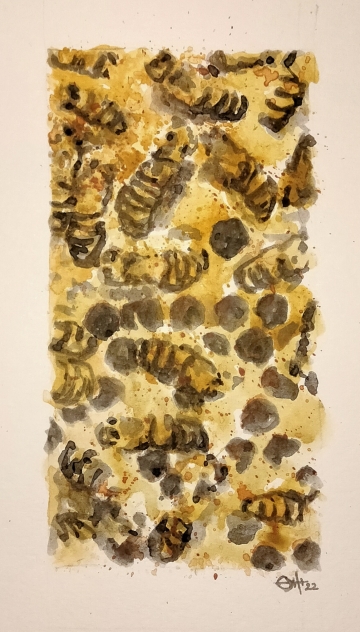 Series and Thoughts
Series and Thoughts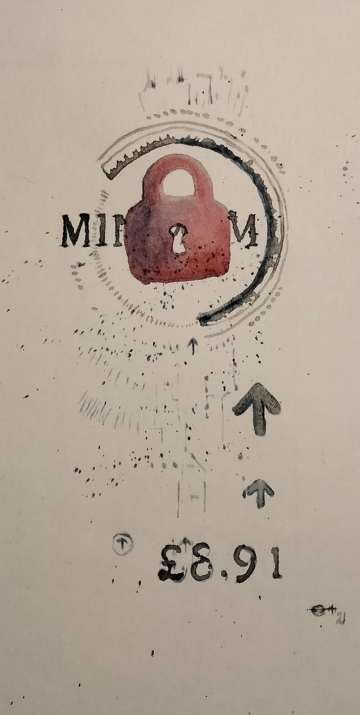 Locked In
Locked In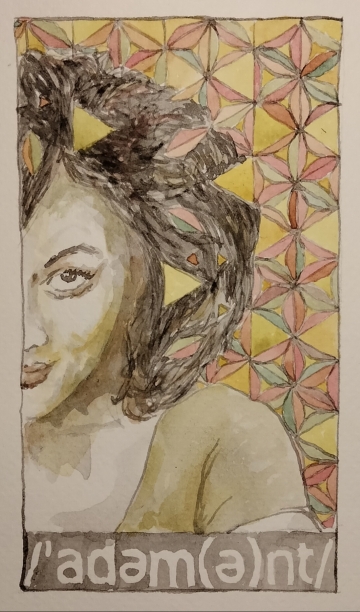
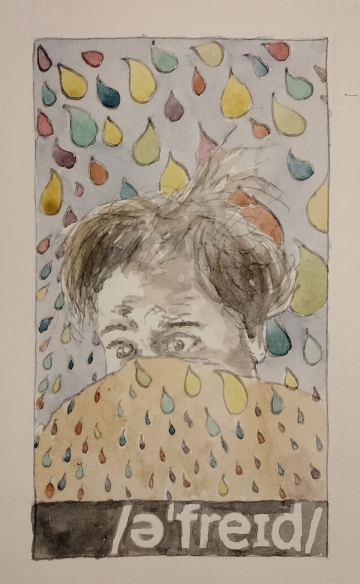
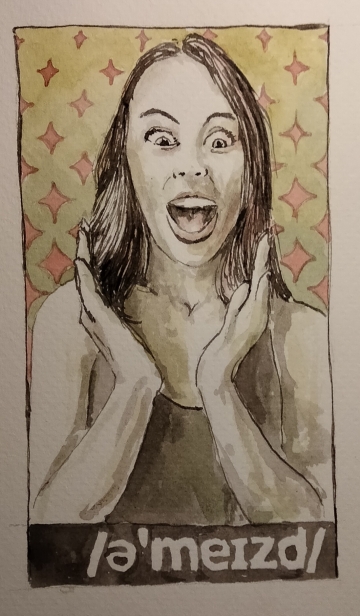
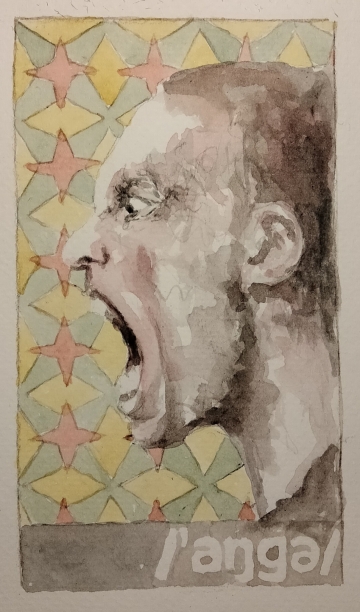
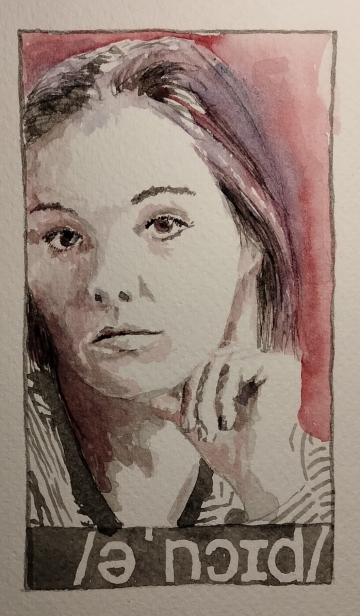
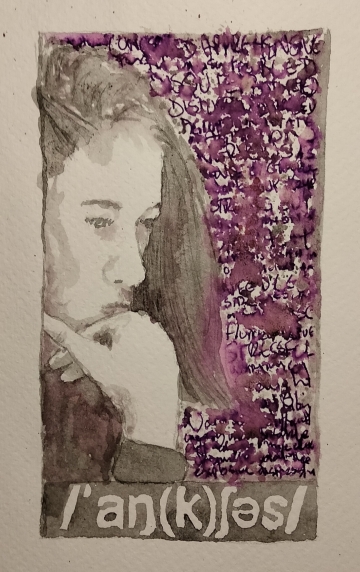
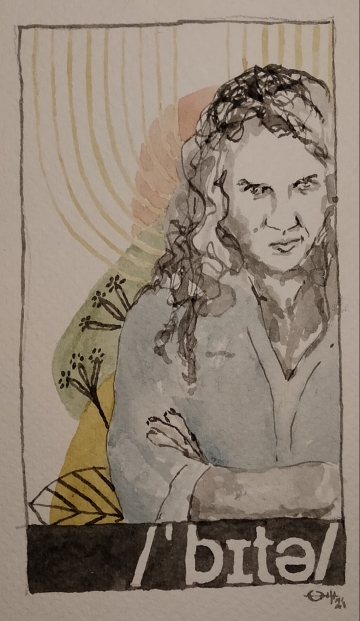
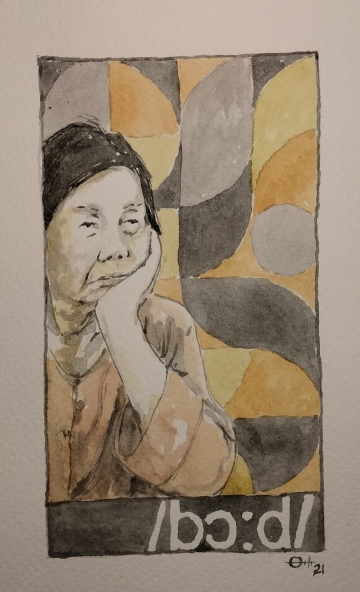

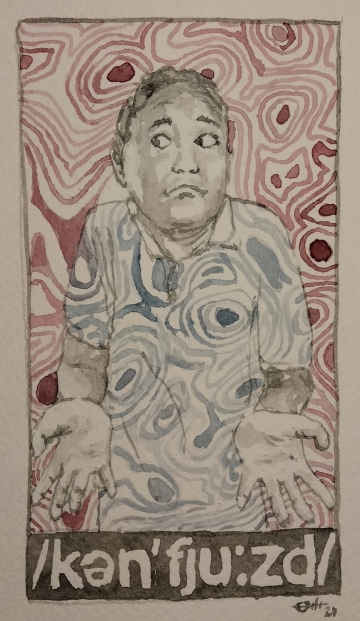
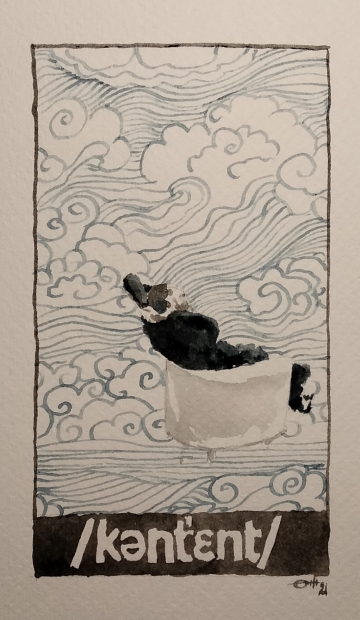
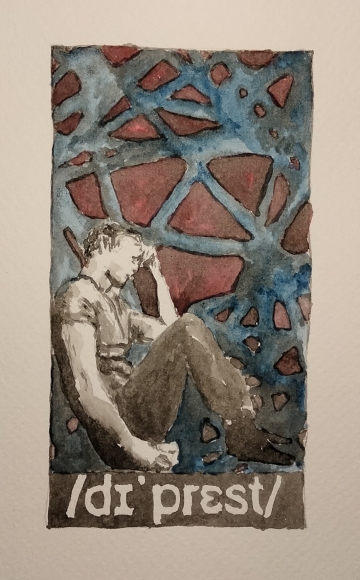
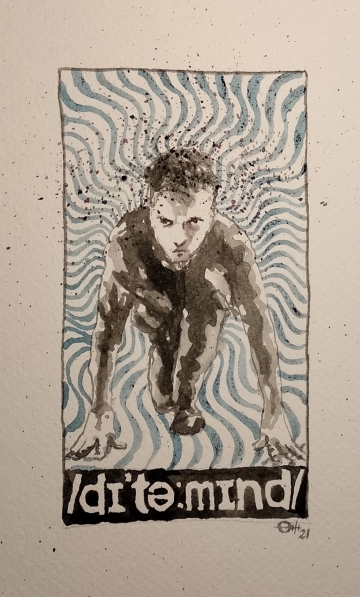
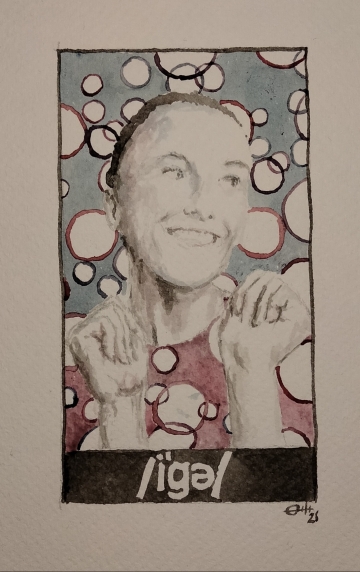
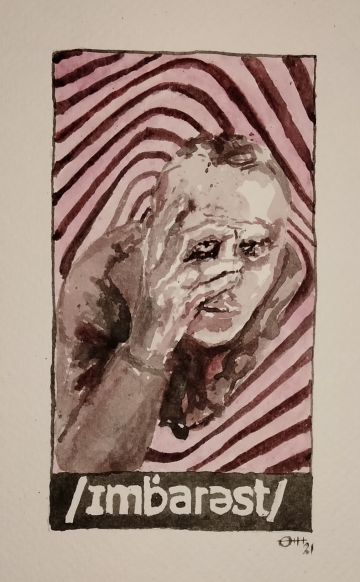
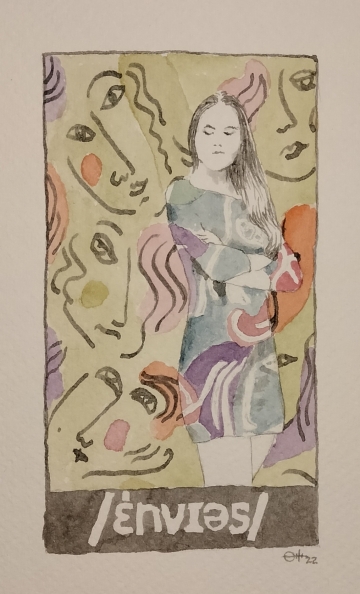
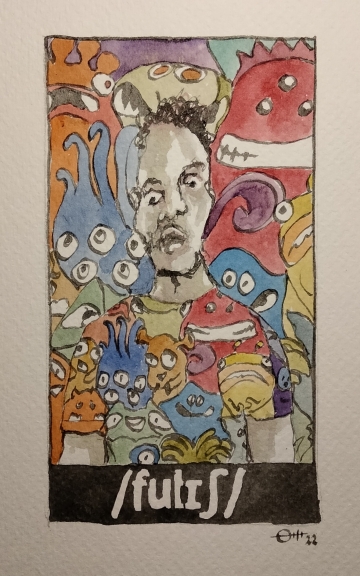
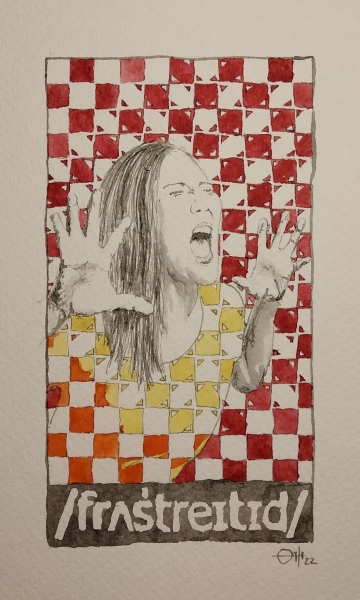
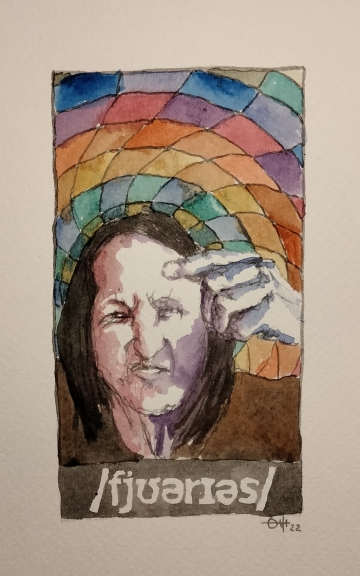
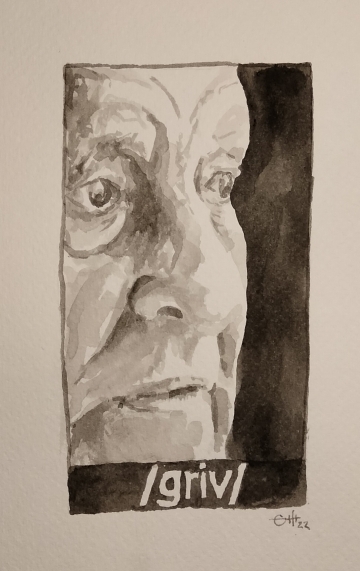
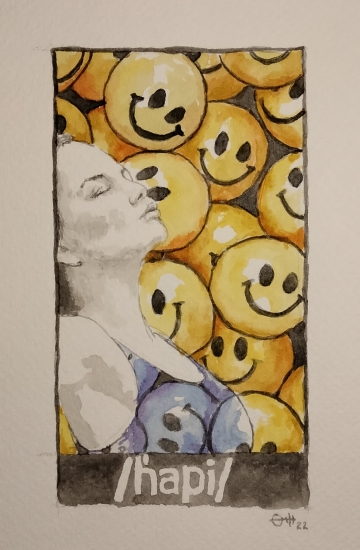
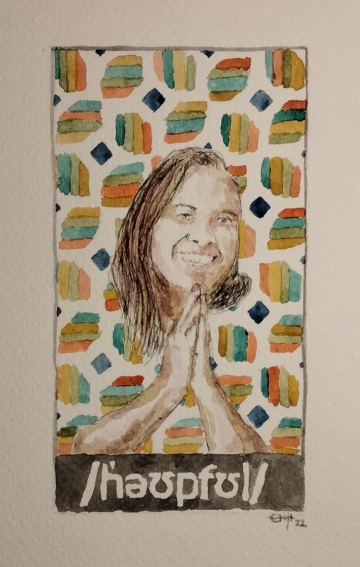
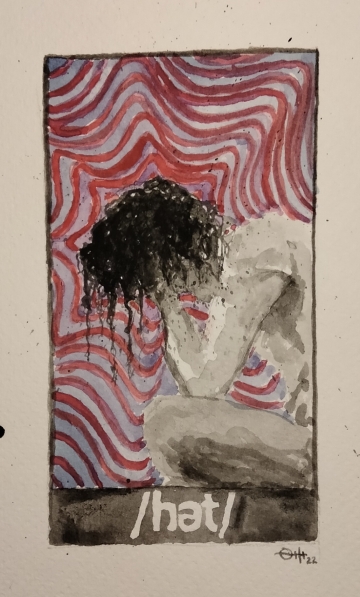
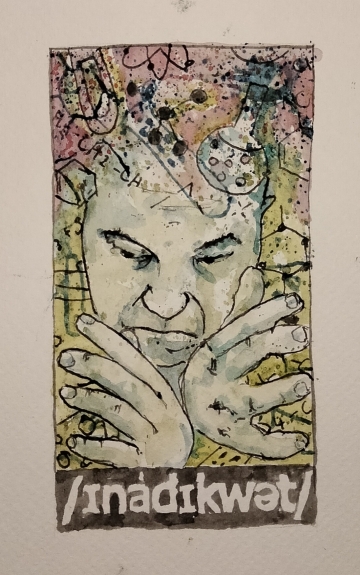
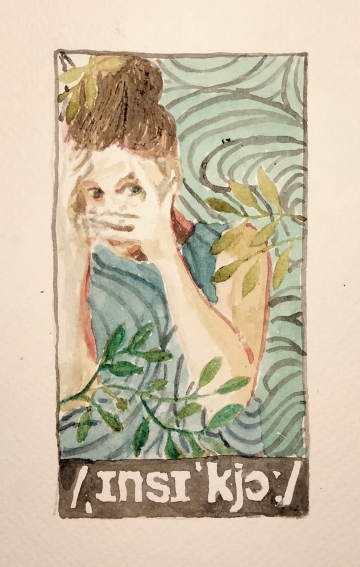
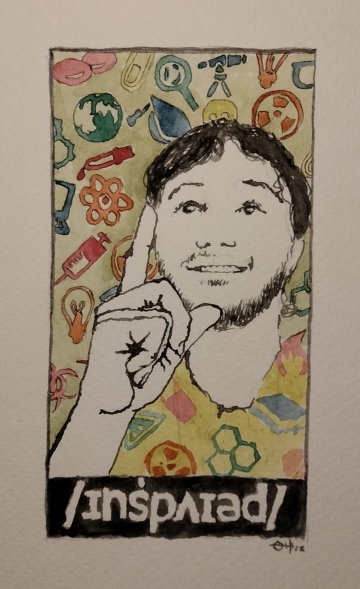
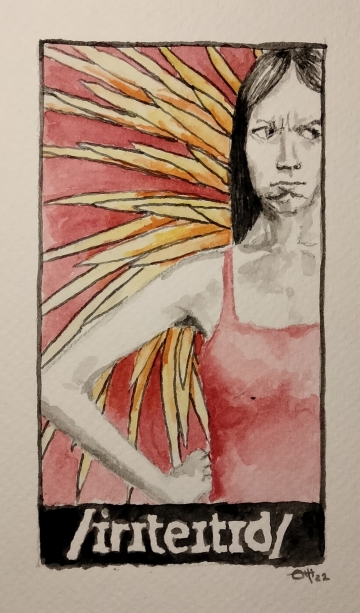
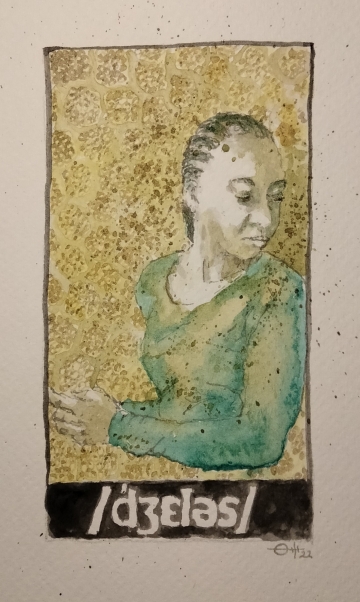
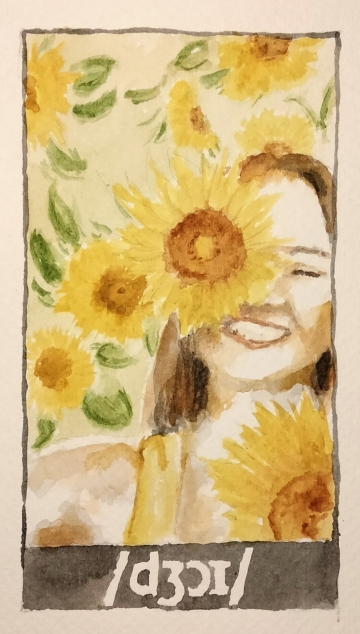
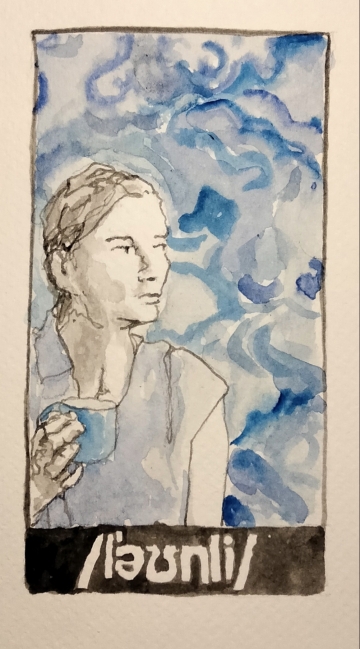
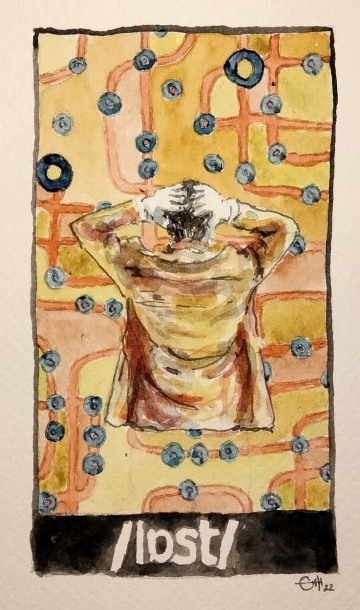
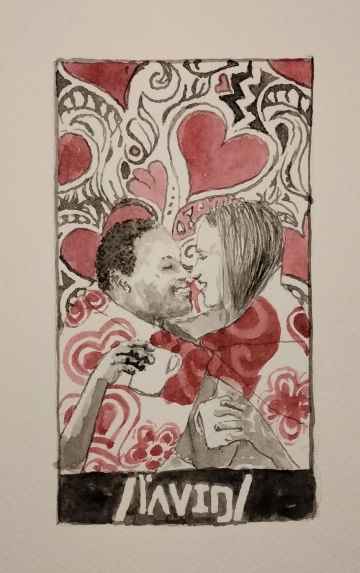
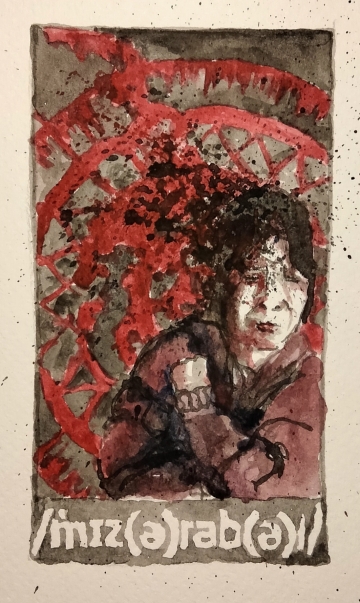
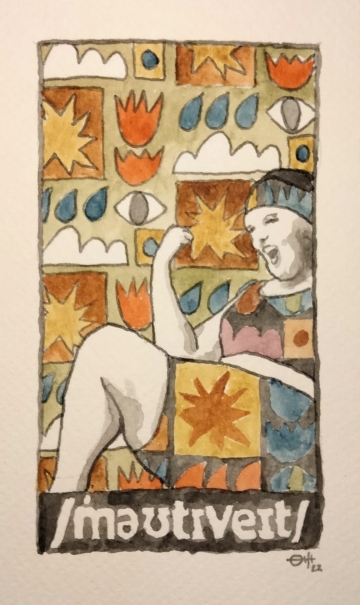
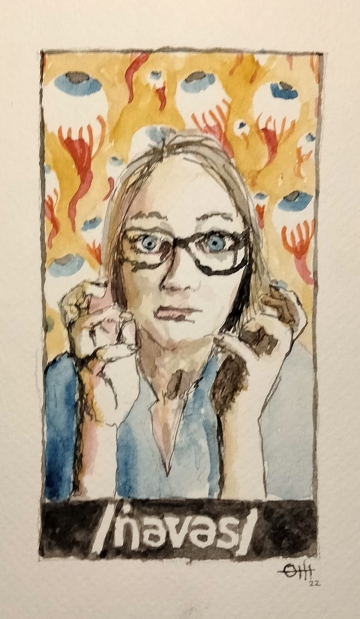
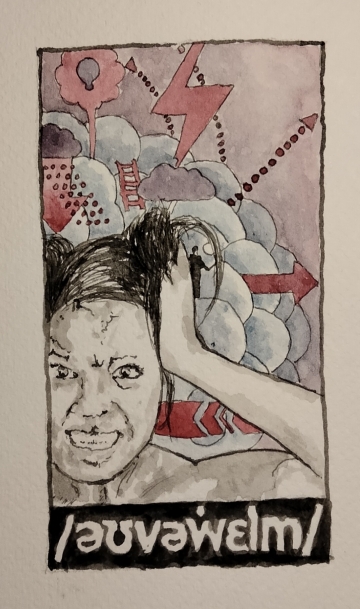
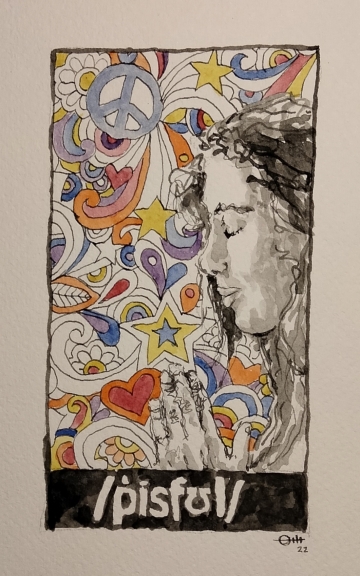
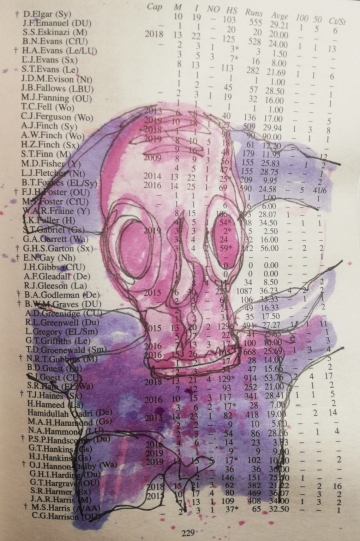 The Daily Sketch
The Daily Sketch 